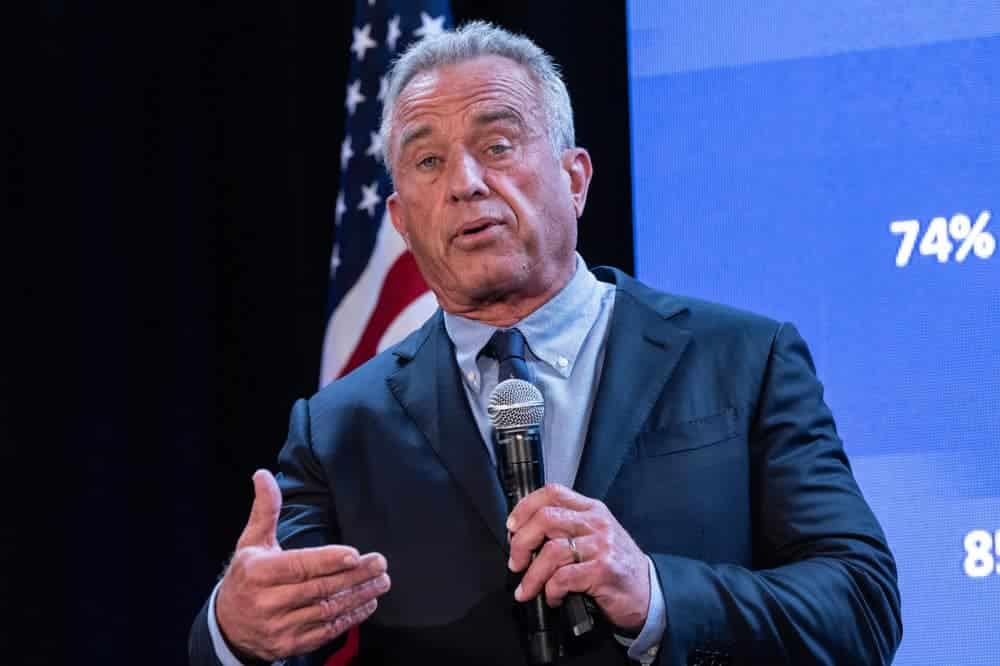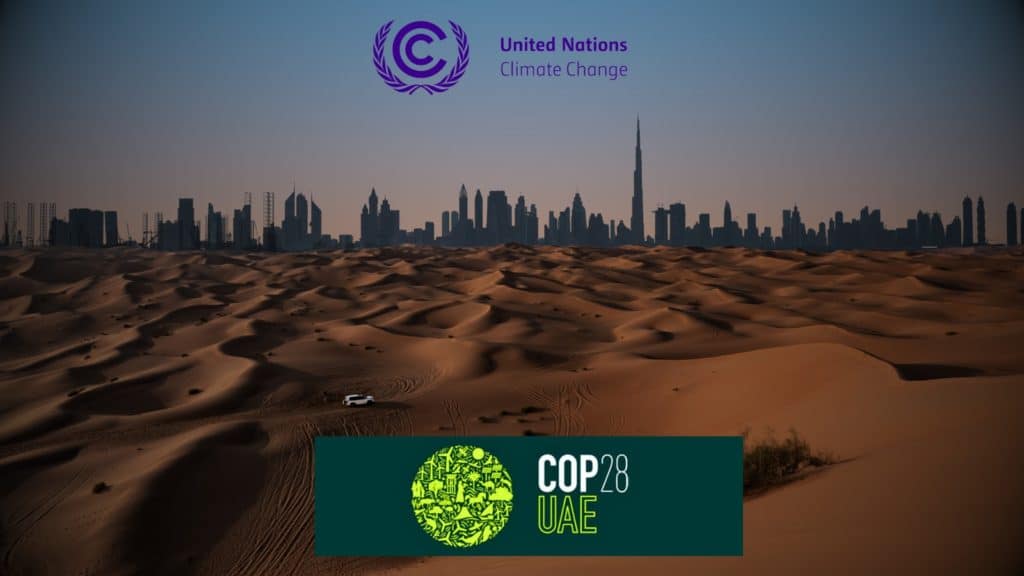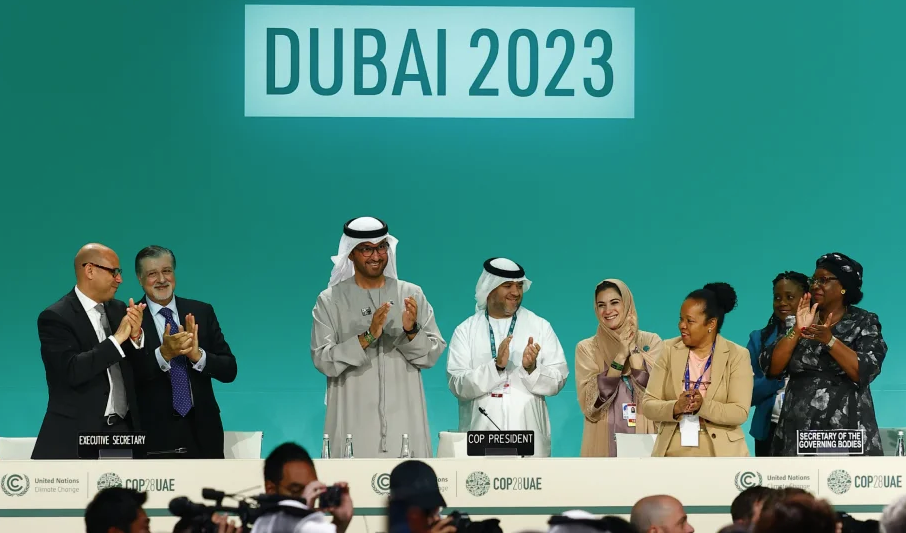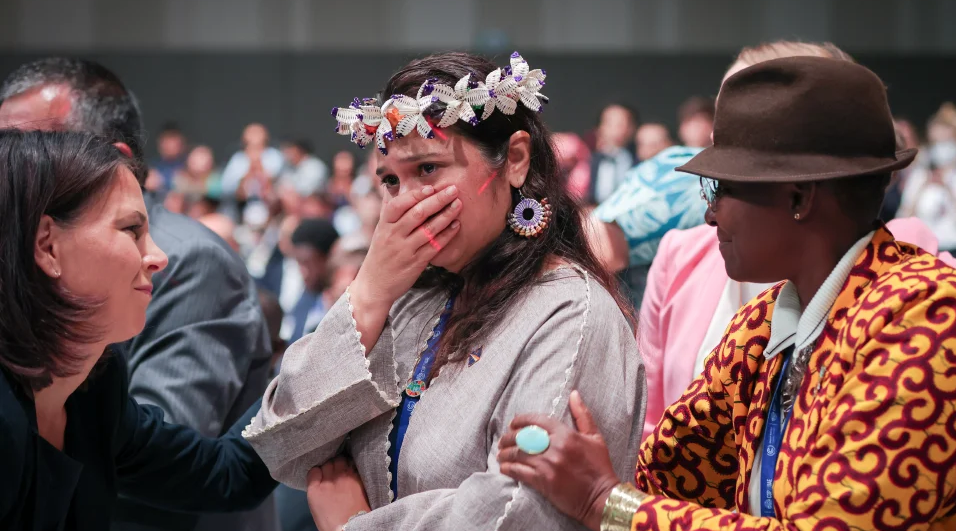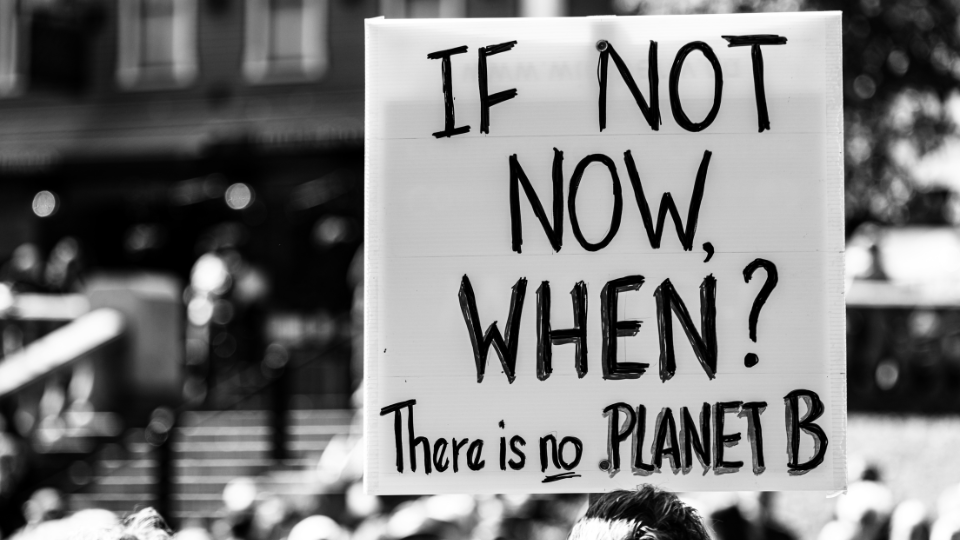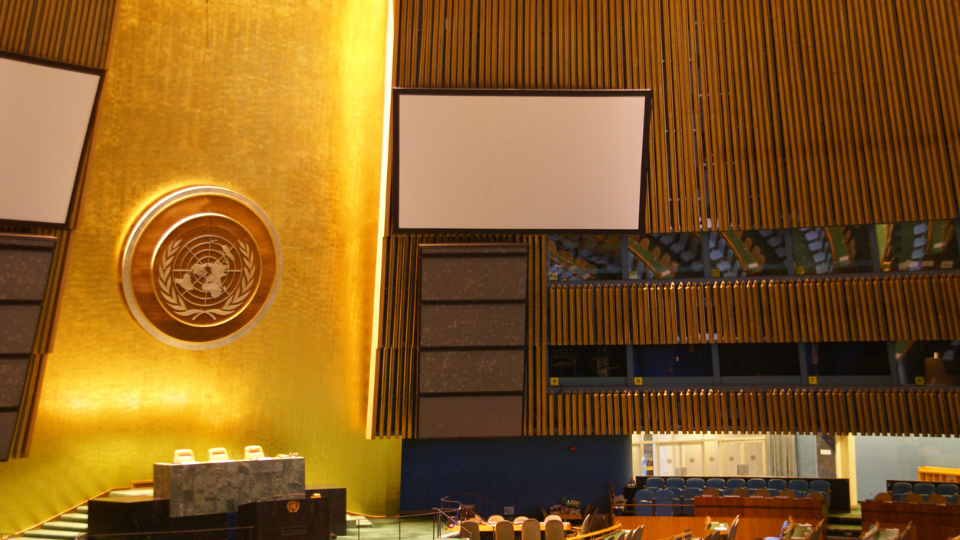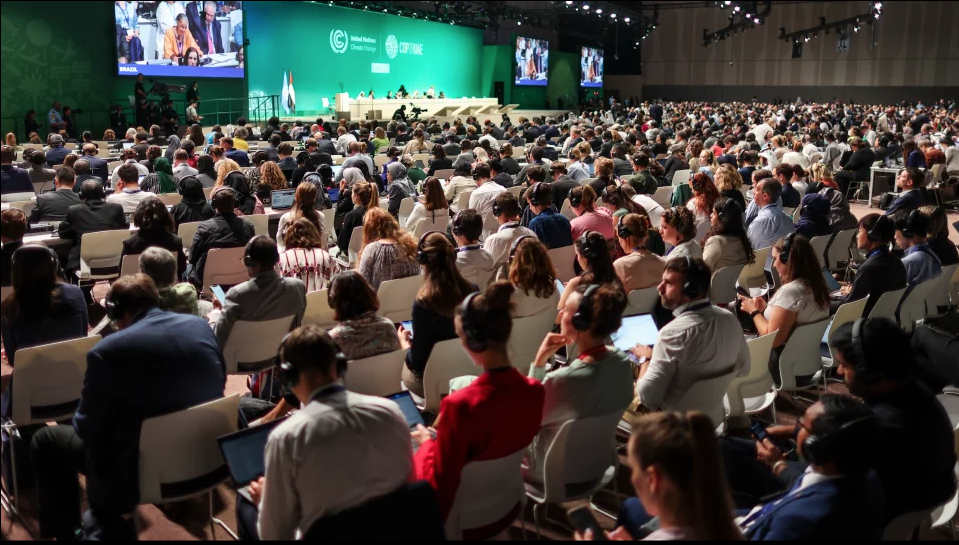
COP29 in Azerbaijan: Breaking the Cycle of Climate Promises
he 29th United Nations Conference of the Parties (COP29) convened in Azerbaijan, marking a pivotal moment in global climate negotiations. Building upon the momentum from COP28, in Dubai, the conference aimed to advance fossil fuel reduction and bolster financial support for vulnerable nations. Despite these ambitions, persistent challenges such as non-binding agreements and sluggish progress resurfaced, underscoring the enduring struggle to transform climate pledges into tangible actions. Read more about the official COP29 outcomes here.
COP29 took place amidst heightened climate urgency and calls for real action. What did Azerbaijan’s COP29 achieve, and where did it fall short? This post unpacks key events, agreements, and challenges. We explore new funding mechanisms, debates on fossil fuels, and the implications for our planet’s future.
Key Outcomes and Challenges of COP29
COP29 began with cautious optimism, but it quickly became apparent that progress would be slow. Negotiators had to address unfinished business from COP28 while dealing with pressing issues like funding for vulnerable countries and global agreements on fossil fuels.
Climate Funding for Vulnerable Nations: A Last-Minute Agreement
One of the primary outcomes of COP29 was an agreement on funding for vulnerable nations. These countries—often the least responsible for climate change—bear the brunt of its effects. Discussions about climate reparations and a “loss and damage” fund dominated the conference.
After prolonged negotiations, a last-ditch deal was struck to establish a new fund to support nations suffering from climate-induced disasters. This funding mechanism includes contributions from developed countries and private entities, marking a shift towards shared global responsibility. See detailed coverage of the deal here.
What Does This Mean for Vulnerable Nations?
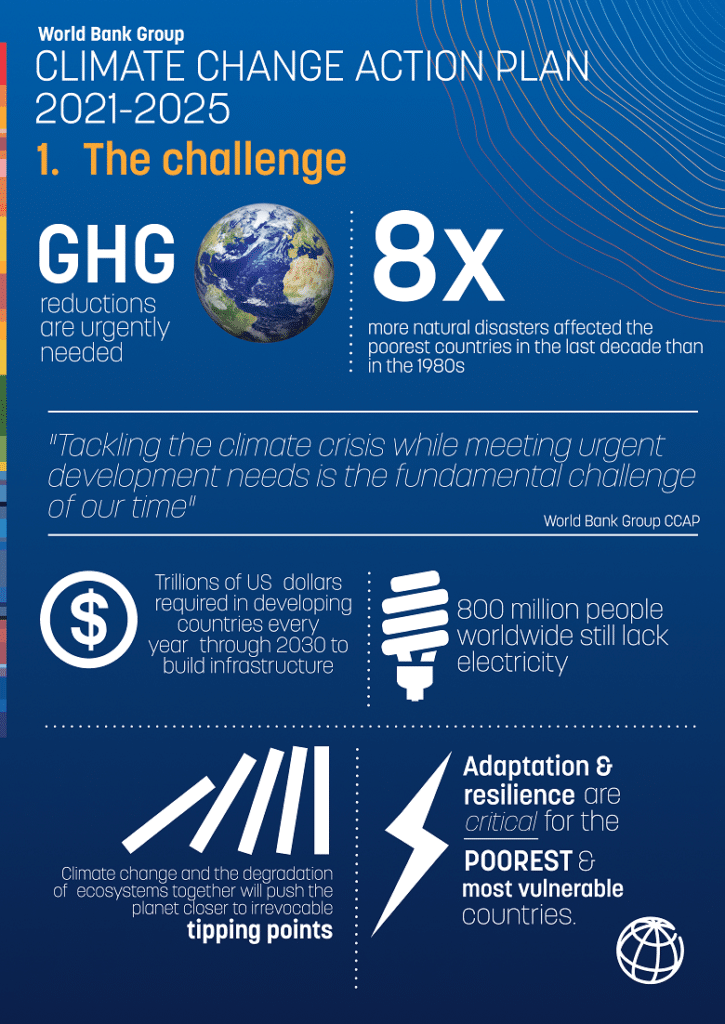
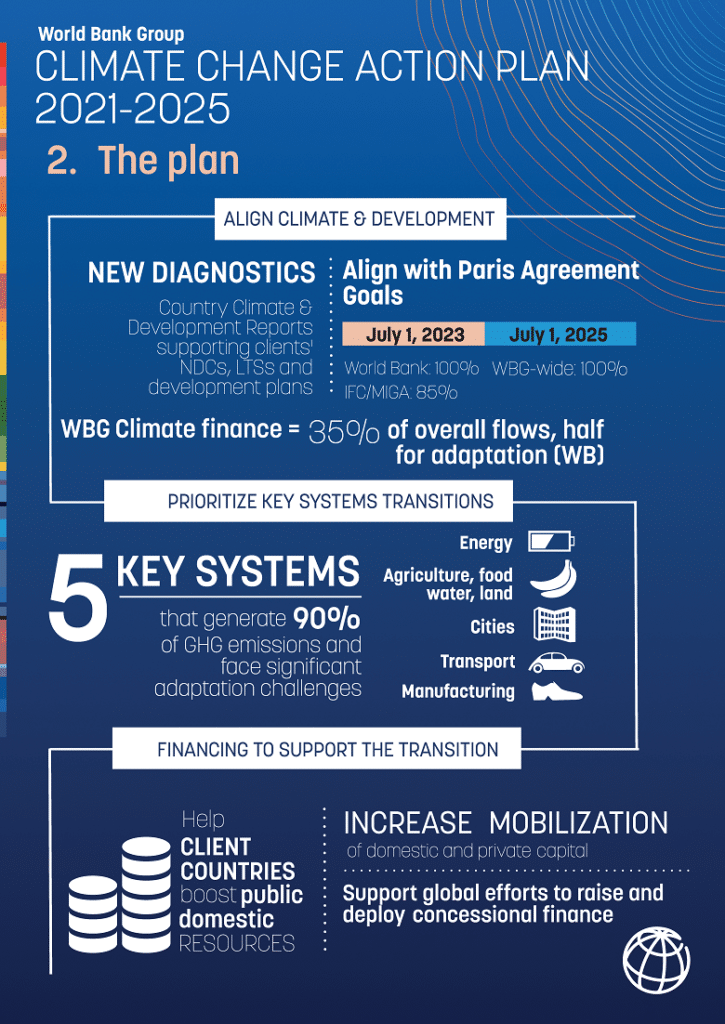
World Bank Group Climate Change Action Plan (2021-2025): Highlighting the challenges faced by vulnerable nations in securing adequate climate finance and adaptation resources.
- Direct Financial Support: The newly created fund will provide direct financial support to countries experiencing severe climate impacts.
- Transparency Commitments: Contributors have committed to greater transparency in distributing funds.
- Access for Smaller Economies: A streamlined process was agreed upon to ensure that smaller, economically fragile nations can access funds quickly.
However, questions still need to be answered about these funds’ adequacy and timely implementation. Past pledges have often been delayed or under-delivered, leaving vulnerable countries without the necessary support. It remains to be seen whether this new agreement can break that cycle.
Addressing Fossil Fuels: The Ongoing Debate

Offshore oil drilling platform—representing the ongoing debates about fossil fuel reduction at COP29 in Azerbaijan.
As expected, fossil fuel reduction was a hotly debated topic during COP29. The stark reality is that drastic cuts to fossil fuel consumption are the only way the world can hope to meet the targets laid out in the Paris Agreement. More details on the Paris Agreement can be found here. However, reaching a consensus on this issue remains politically challenging.
This year, oil-producing nations and countries pushing for a quicker transition to renewable energy disagreed significantly. Despite efforts to get all nations to agree on a timeline to phase down fossil fuels, no binding agreement was reached. This deadlock highlights a fundamental challenge in the global climate effort: balancing the economic interests of fossil fuel-rich countries with the urgent need for a clean energy future.
The Push for Renewable Energy Transition
- Developing Nations’ Concerns: While supportive of renewables, many developing nations expressed concerns over how they would fund their transitions.
- Oil and Gas Lobbying: The influence of the oil and gas industries was apparent throughout the talks, with heavy lobbying to water down commitments.
- Regional Cooperation: However, new regional cooperative agreements aimed at enhancing renewable infrastructure have been signed, which could serve as a positive signal.
Engagement of the Private Sector and Communities
One of the positive trends during COP29 was the increasing role of the private sector in climate finance. Companies across industries pledged to contribute to the “loss and damage” fund, and many spoke about their commitments to reaching net-zero emissions by 2050. This marks a shift from seeing climate action as solely the responsibility of governments.
Key Initiatives from the Private Sector
- Funding Pledges: Several multinational corporations pledged financial support to climate funds.
- Green Energy Investments: Companies have begun investing more heavily in renewable energy projects.
- Community Projects: There was a noticeable uptick in businesses committing to support community-level adaptation projects, showing a shift towards local climate resilience efforts.
Sports and Climate Action: Bridging the Gap Between Rhetoric and Reality

A packed stadium during a major sporting event—highlighting the significant environmental impact of the sports industry’s travel and energy consumption.
Community engagement emerged as a key theme at COP29. One aspect that received considerable attention was the use of sports to foster climate awareness. Sports teams and events significantly influence the community level, making them appear to be ideal vehicles for promoting sustainability. However, the reality of the sports industry’s role in climate action is far from rosy.
Athletes Speak Up at COP29: A Call for Genuine Change
Unlike many sports governing bodies, athletes have increasingly been vocal about the need for real climate action. During COP29, several prominent athletes used their platform to highlight the urgent need for climate measures, expressing their frustrations with the slow pace of change and calling for binding commitments from governments and sports organizations. These athletes emphasize the disconnect between rhetoric from major sports bodies—such as FIFA—and the real action needed to protect the planet. Read more about athletes raising their voices during COP29 here.
Their message was clear: the sports industry, with its massive global influence, has a responsibility not just to promote climate awareness but to actively engage in genuine, measurable, and effective climate solutions. Athletes’ involvement shows that the will to act is strong among individuals within the industry, even if the governing bodies have yet to catch up.
The global sports industry is a significant economic sector, valued at approximately $501.92 billion in 2023, and is projected to grow at a compound annual growth rate (CAGR) of 10.2%, reaching around $868 billion by 2030. This scale brings with it a considerable environmental impact—one that is largely being ignored in favor of greenwashed PR narratives.
Despite its messaging, the sports industry contributes substantially to carbon emissions, with travel, water, and energy consumption being the main culprits. Travel alone is estimated to account for up to 70% of the industry’s carbon emissions. Read more about tactics for reducing a tournament’s carbon footprint here.
The True Impact of Sports on Climate
- Lack of Data Transparency: To date, no credible and standardized data regarding the global sports industry’s total emissions are available. This lack of transparency is an obstacle to genuine action.
- Greenwashing and PR Campaigns: Major sporting bodies and event organizers consistently present themselves as climate champions. However, these efforts are often limited to PR campaigns and storytelling rather than any measurable impact. Read a critical analysis of greenwashing here. For example, organizing a “carbon-neutral” sporting event without addressing the fundamental issue of air travel emissions remains deeply problematic.
- Ineffective Frameworks: Much of this greenwashing is supported by frameworks from the UN and other organizations. These frameworks set out voluntary guidelines that lack enforcement mechanisms. They do not compel stakeholders—whether governing bodies, event organizers, rights holders, teams, or individual athletes—to adopt substantive emissions reduction practices.
- Ban Fossil Fuel Sponsorships: If the sports industry is serious about tackling climate change, it should start by banning sponsorships from fossil fuel companies, much like it did with alcohol and tobacco brands. This would send a strong message and reduce the influence of polluting industries.
Unfortunately, the intersection of sports and sustainability is more rhetoric than reality. The industry must acknowledge its role as a major contributor to climate change rather than rely on vague commitments and marketing gimmicks. Without concrete steps and real accountability, the sports industry’s climate promises will remain empty words.
Azerbaijan’s Role in COP29: Significance of the Host Nation
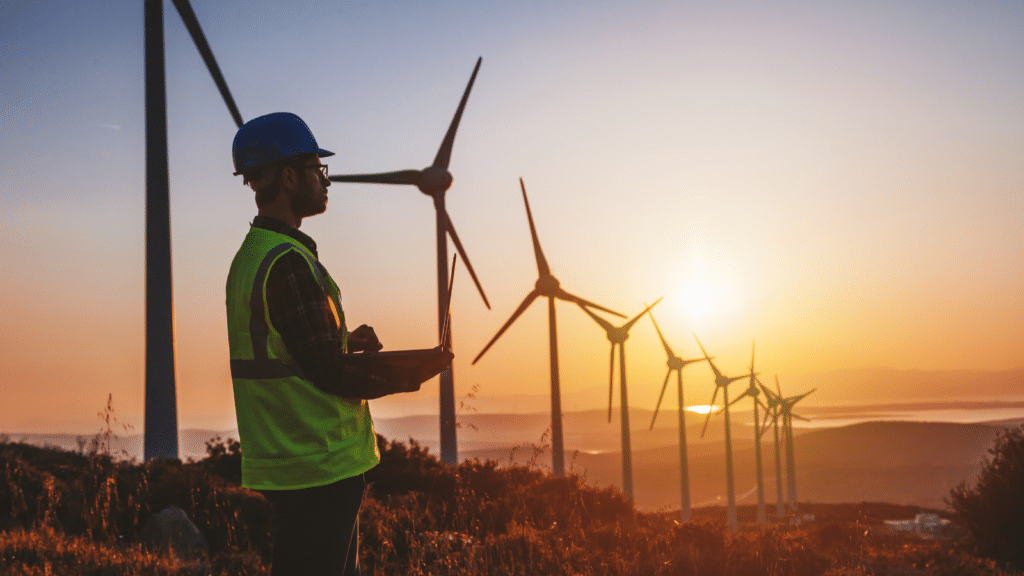
Wind turbines farm – Representing the global push for renewable energy as part of climate action.
Hosting COP29 in Azerbaijan was significant. As a nation rich in oil and gas, Azerbaijan exemplifies the complexities of transitioning to renewable energy. The spotlight was on how fossil fuel-dependent countries manage climate commitments. Learn about how the CTA rates COP29 host Azerbaijan’s climate action here.
Azerbaijan’s Own Climate Goals
Like many other fossil fuel-dependent countries, Azerbaijan faces a unique set of challenges when balancing economic growth with environmental responsibility. At COP29, the government outlined its plans for reducing emissions and increasing renewable energy capacity. Key initiatives include:
- Wind and Solar Investments: Azerbaijan plans to expand its renewable energy projects, focusing on solar and wind power.
- Reducing Methane Emissions: The country has committed to cutting methane emissions, a significant issue given its oil and gas industry.
However, critics argue that these commitments fall short of meeting the 1.5°C target. Although Azerbaijan is a resource-rich country, the transition to renewable energy will still require significant technical expertise and international cooperation. This highlights the importance of shared knowledge, capacity-building, and technological support to ensure that even economically stronger fossil fuel-reliant nations can transition efficiently.
Climate Finance: Central Issues and Future Directions
Finance has always been a major stumbling block in climate negotiations, and COP29 was no exception. While establishing a “loss and damage” fund was a positive outcome, there were ongoing debates about mobilizing necessary resources. Read more about the challenges of funding here.
Challenges in Mobilizing Climate Finance
- Pledge vs. Delivery: History has shown a gap between the amounts pledged by developed countries and what is actually delivered.
- Private Sector Role: The private sector is increasingly being considered a source of climate finance. While corporations have made promises, the challenge is translating these into tangible outcomes.
- Debt and Financial Constraints: Many vulnerable countries face debt burdens that hinder their ability to adapt to climate impacts. Innovative solutions, like debt-for-nature swaps, were discussed but needed further development.
Post- COP29: Necessary Changes for Future Progress
COP29 made progress, but it also laid bare the challenges that lie ahead. The urgency of climate change demands bolder actions and swifter implementation. To truly make a difference, the following areas require attention:
- Fossil Fuel Phase-Out: Without a clear timeline and commitment from all nations, fossil fuels will continue to undermine global climate efforts.
- Accountability in Finance: Nations and private entities must be held accountable for their financial commitments, ensuring that funds reach their intended recipients.
- Inclusive Adaptation Strategies: Climate strategies must be inclusive, factoring in the unique challenges faced by the most vulnerable, including small island nations and economically fragile countries.
- Holding the Sports Industry Accountable: The sports industry’s significant carbon footprint must be addressed through binding commitments and transparent reporting.
Empowering Individuals and Communities in Climate Action
Climate action is not just about governments and corporations. Local communities and individuals play a critical role in driving change. COP29 highlighted various grassroots initiatives that are making a difference, from reforestation projects to community-led adaptation measures.
How You Can Make a Difference
- Support Green Businesses: Choose to support businesses with a genuine commitment to sustainability.
- Reduce Personal Carbon Footprint: Small changes, like reducing energy use or opting for public transport, add up.
- Community Involvement: Get involved in local initiatives that prioritize environmental conservation and habitat protection. Instead of focusing solely on tree planting, rally behind efforts to preserve and protect existing natural ecosystems, such as forests, oceans, and wildlife habitats. Private citizens and communities should also push their representatives, locally or regionally, to enact legislation for conserving and protecting our natural spaces. This means protecting our oceans, forests, deserts, and wildlife while supporting our farmers and ranchers to produce clean, fresh, and healthy products. Conservation is about preserving what we have rather than allowing further destruction for profit-driven interests.
Conclusion: COP29 – Achievement and Shortcomings
COP29 in Azerbaijan was a mixed bag of progress and setbacks. Establishing the loss and damage fund is a significant step forward, particularly for vulnerable nations. However, the need for a binding commitment to fossil fuel reduction is a glaring omission that must be addressed in future conferences.
The climate crisis requires urgent, coordinated action across all levels of society. Governments, private companies, and individuals all have roles to play. But without binding agreements, the progress made is at risk of being lost to political backtracking and economic self-interest. The journey from COP29 should be about translating promises into practical action—something the world sorely needs to meet the goals of the Paris Agreement and secure a livable future.
The next few years are crucial. As we look ahead to COP30, the challenge will be to build on the foundations laid at COP29, turn agreements into action, and ensure that no one is left behind in the global fight against climate change.
How to Maintain Momentum in Climate Advocacy

Pristine natural landscape—highlighting the significance of conservation over industrial expansion for climate and community well-being.
- Stay Informed: Keep track of climate developments and hold your leaders accountable. Knowledge empowers action, and staying informed puts pressure on those in power.
- Engage in Dialogue: Discuss climate issues openly with your friends, family, and community. Collective awareness is the starting point for collective action.
- Push for Corporate Accountability: Demand that the companies you support adopt and maintain sustainable practices. Consumer power can influence corporate behavior towards meaningful climate action.
- Advocate for Policy Change: Push your representatives for more vital climate legislation. Public demand can drive political commitment toward enforceable, impactful policies.
- Push for Policy Change: Advocate for stronger climate policies at local and national levels.
COP29 showed us that while there is a will for change, the real challenge is in turning that will into concrete action. We cannot afford to wait until COP30—let’s start making a difference today. Expert opinions on the future of climate action can be found here.
However, the reality remains grim. Twisted pledges, empty commitments, and repetitive outcomes make it difficult to ensure the fundamental rights of clean air, water, and soil. Leading figures have warned that these climate summits may no longer be fit for purpose. read more about these warnings here.
Nevertheless, we must hold on to hope and push for genuine solutions. Nations need to rethink their approaches, focusing on securing the three fundamental rights for all species: clean air, clean water, and healthy soil. The COP process must evolve beyond empty promises and focus on enforceable, tangible action. Let’s work together to make sure that change is real, impactful, and lasting.




